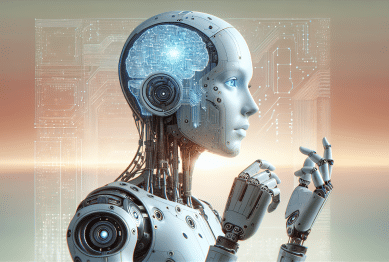Quantum computing is creating new possibilities in tech and science, generating widespread curiosity. Get a reader-friendly breakdown of what quantum computers are, why quantum algorithms are unique, and how this evolving field could influence industries and society for years to come.
Understanding Quantum Computing Basics
Quantum computing might sound like science fiction, but it’s already shaping the future of technology. At its core, quantum computing relies on the principles of quantum mechanics to process information in ways traditional computers simply cannot. Instead of classical bits, which store information as either 0s or 1s, quantum computers use qubits. These powerful units can exist as 0, 1, or both at the same time thanks to a phenomenon called superposition. This unique property allows quantum computers to explore multiple solutions at once, making them exceptionally good at solving complex problems.
Another critical concept linked to quantum algorithms is entanglement, a peculiar quantum effect where two or more qubits become strongly correlated. When qubits are entangled, the state of one instantly influences the state of another, even if they’re separated by large distances. This enables rapid processing and communication within a quantum system. With entanglement and superposition, quantum computers open doors to parallel computation at a scale unimaginable with classical systems.
The sheer potential of quantum computing is already attracting global investments and research. Universities, tech giants, and governments are working to make these futuristic machines practical. Researchers believe that solving certain mathematical and scientific problems efficiently will soon rely on quantum-enhanced computing power, offering speed and accuracy boosts for everything from cryptography to supply chain management.
How Quantum Computers Differ from Classical Machines
While conventional computers run on binary logic, quantum computers disrupt these foundations by leveraging quantum properties. The difference goes well beyond hardware. Quantum computation enables certain types of calculations, like simulating quantum physics or decrypting encrypted information, to be performed in far fewer steps. For scientists and engineers, this means quantum computers could tackle problems too complex or time-consuming for classical machines to decode.
Quantum speedup is one of the most intriguing features experts discuss. Algorithms developed for quantum computers, such as Shor’s algorithm for factoring large numbers, have shown theoretical advantages that could change how security systems and financial record-keeping are conducted. Many industries find the promise of quantum supremacy—a point where quantum computers outperform classical supercomputers—immensely appealing, fueling ongoing research and speculation on broad applications (Source: https://www.nist.gov/quantum).
The development of quantum hardware is advancing rapidly. Companies are building various quantum processor designs, including superconducting circuits and trapped ions, each with unique advantages. Although today’s quantum machines still grapple with stability challenges, the progress observed in the quantum computing ecosystem suggests practical, large-scale quantum computers may soon be a reality for businesses and researchers.
Quantum Algorithms and Their Applications
One of the most exciting aspects of quantum computing is its potential to transform several industries using quantum algorithms. These specialized algorithms can be used to solve certain mathematical problems much more efficiently than existing classical algorithms. For example, Grover’s algorithm efficiently searches unsorted databases, which could streamline logistics, information retrieval, and drug discovery.
The impact of quantum computing on cryptography is frequently discussed. Current public-key cryptosystems rely on mathematical problems considered too difficult for traditional computers, but quantum computers could potentially break these codes using algorithms like Shor’s. This has led to the emerging field of post-quantum cryptography, focused on safeguarding information systems against future quantum attacks (Source: https://csrc.nist.gov/projects/post-quantum-cryptography).
Other promising quantum applications include material science simulations, optimization in supply chains, and climate modeling. By simulating molecules at the quantum level, scientists hope to discover new materials or medicines. Corporations and governments are actively exploring these possibilities through pilot projects and collaborative research with quantum labs and academic partners.
Quantum Computing in Industry and Research
The business world is increasingly curious about how quantum computing might affect competitiveness. Industries like pharmaceuticals, finance, and transportation see opportunities to gain an edge by mastering quantum-powered modeling and optimization tasks. Pharmaceutical companies are using quantum simulations to accelerate drug discovery, while banks experiment with algorithms for risk analysis and fraud detection.
Collaboration is a key driver in quantum research. Universities and tech companies often partner to accelerate the development of practical quantum machines. Dedicated research initiatives, including those funded by governments, fuel innovation and solve critical engineering problems. Investments also flow into quantum software startups aiming to build usable tools and quantum programming languages (Source: https://www.ibm.com/quantum-computing/).
Public cloud-based platforms now allow developers and students worldwide to experiment with basic quantum programs. This openness to learning and experimentation is broadening access to quantum technology, arming future professionals with foundational knowledge for an industry poised on the edge of mainstream adoption.
Challenges Facing Quantum Technology
Despite all the promise, quantum computing comes with significant technical hurdles. Qubits are highly sensitive to their environment, easily disturbed by temperature, electromagnetic fields, and even cosmic rays. This leads to decoherence, making it difficult to maintain the delicate quantum states needed for computation. Strategies for error correction and fault tolerance are under constant investigation in top research labs.
Quantum computing requires ultra-low temperatures, specialized facilities, and a deep pool of scientific experts. These demands create barriers to entry for most organizations. Still, rapid technological advances—and the emergence of industrial partnerships—offer hope that scalable, reliable quantum machines will become more accessible over time (Source: https://www.nature.com/articles/d41586-021-02981-3).
In addition to engineering challenges, the ethical and security aspects of quantum computing draw attention. Breaking widely used encryption could leave sensitive data exposed, forcing society to rethink digital privacy. On the positive side, awareness about quantum security has inspired action in developing new cryptographic defenses, keeping pace with technological progress.
What the Quantum Future Could Look Like
Many experts envision a hybrid future where quantum computers work alongside classical systems instead of replacing them. These quantum-classical partnerships will drive breakthroughs in science, technology, medicine, and sustainability. Cloud access to quantum devices is expected to democratize their use, enabling startups, research labs, and even students to explore their potential.
Preparation for a quantum future means investing in education. Expanded university curricula, quantum programming resources, and industry training are building a talent pipeline. Skills like problem formulation for quantum hardware, circuit design, and quantum software development are all poised for high demand. As adoption grows, more jobs will require these unique competencies (Source: https://www.qis.gov/roadmap.html).
The evolution of quantum computing is still in its early stages, but its potential continues to inspire curiosity and innovation worldwide. By staying up to date with developments, individuals and organizations will be well-positioned to harness the possibilities this revolutionary technology promises.
References
1. National Institute of Standards and Technology. (n.d.). Quantum Information Science. Retrieved from https://www.nist.gov/quantum
2. National Institute of Standards and Technology. (n.d.). Post-Quantum Cryptography Project. Retrieved from https://csrc.nist.gov/projects/post-quantum-cryptography
3. IBM. (n.d.). Quantum Computing. Retrieved from https://www.ibm.com/quantum-computing/
4. Nature. (2021). Quantum computers tackle bigger problems. Retrieved from https://www.nature.com/articles/d41586-021-02981-3
5. Quantum.gov. (n.d.). Quantum Information Science and Technology Roadmap. Retrieved from https://www.qis.gov/roadmap.html
6. MIT OpenCourseWare. (n.d.). Quantum Physics II. Retrieved from https://ocw.mit.edu/courses/physics/8-05-quantum-physics-ii-fall-2013/









